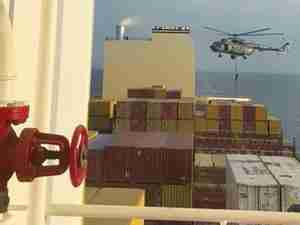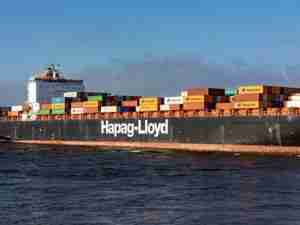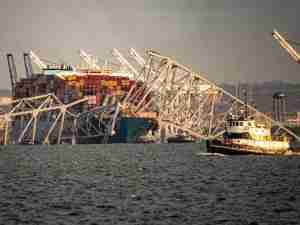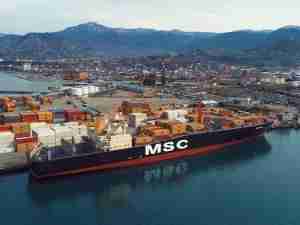Hanjin Revival Tough If Unloading Not Expedited, Court Says
By: Kyunghee Park | Sep 21 2016 at 06:59 AM | Liner Shipping
The South Korean court overseeing the receivership application of Hanjin Shipping Co. said the stranded vessels of the troubled container line are taking too long to unload cargo, and a delay will make it impossible to revive the company.
Hanjin needs to quickly end the supply chain disruptions and the longer it takes to return the chartered ships means more claims and debt will pile up, a court spokesman said, declining to be identified, citing policy. The board of Korean Air Lines Co., the largest shareholder of the shipping line, will meet Wednesday night in Seoul to speed up about 60 billion won ($54 million) of funding to the company, according to a person familiar with the plan, who asked not to be identified as the information is private.
Shares of Hanjin Shipping tumbled to a record low Wednesday amid fading chances of survival and after Yonhap News Agency, citing the court, reported a rehabilitation plan was “realistically impossible.” Hanjin’s collapse has caused “widespread disruptions in freight shipments worldwide,” U.S. trade groups said in a letter Tuesday, urging the Commerce Department to work with the South Korean government and end the crisis.
“Something needs to be done quickly,” said Park Moo-hyun, an analyst at Hana Financial Investment Co. in Seoul. “Investors appear to take this to mean that the court also thinks the chances of Hanjin Shipping’s survival are growing dimmer.”
The judge met with representatives of Korea Development Bank, the Ministry of Oceans and Fisheries, the nation’s Port Authority and also those of the company on Monday.
Returning Vessels
Shares of Hanjin Shipping plunged 21 percent to 895 won in Seoul, the lowest level since Dec. 30, 2009, according to data compiled by Bloomberg. The stock has slid 75 percent this year, compared with a 3.8 percent gain in the benchmark Kospi index.
The court has advised Hanjin to return all chartered vessels to cut costs as the fees amounted to about $2 million a day. The company has already started reducing its fleet by returning some box and bulk carriers to their owners. A spokesman for Hanjin declined to comment on the court meeting.
Under the law, the court’s job now is to help find a way for Hanjin’s revival, and liquidation is an option that may be considered later when the court finds the company can no longer operate, the spokesman said. Of the Seoul-based liner’s 97 container ships, 60 were chartered, while among its 44 bulk ships, 23 were leased as of Sept. 11.









